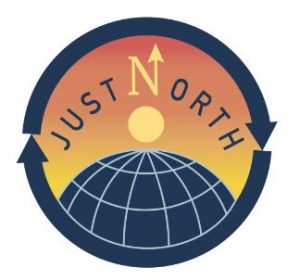A growing interest in Arctic resources leads to increased pressure on local authorities to accept new industrial projects in their areas. This includes mining, petroleum, wind energy and less mature technologies like hydrogen and ammonia production.
Freng Dale, Ragnhild, and Halvor Dannevig
A growing interest in Arctic resources leads to increased pressure on local authorities to accept new industrial projects in their areas. This includes mining, petroleum, wind energy, and less mature technologies like hydrogen and ammonia production. This is also seen in Northern Norway where the High North (Nordområdene) region has become an area of strategic interest, particularly in terms of energy and security discourses (see Jensen and Hønneland, 2011; Jensen and Kristoffersen, 2013). To date, only two petroleum projects have been realized in the region: the liquefied natural gas (LNG) project Snøhvit and the oil project Goliat, both located near the town of Hammerfest. Two more fields are in the construction and planning stages, and Barents Sea petroleum continues to be controversial – though more so nationally than regionally. Conflicts over two prospective mining projects, Nussir in west Finnmark and Biedjovagge in east Finnmark, have also marked the past decade. Construction has already started in the case of Nussir, while Biedjovagge was aborted at an early stage by the municipality to avoid damaging land used for reindeer herding. These conflicts concern both the rights and interests of the Indigenous Sámi and the distribution of burdens and benefits for all parts of the region’s population. New controversies have also emerged over onshore wind power and proposals for new renewable projects that are part of the transition to low-carbon energy sources, and, more recently, over the increased energy demand if the electrification of the petroleum sector takes place in the north.
While mining and petroleum projects have received a lot of interest from academia (Dale, 2019; Dannevig and Dale, 2018; Magnussen and Dale, 2018; Nygaard, 2016; Arbo and Hersoug, 2010), a thorough discussion of justice which examines how theoretical approaches can be applied to processes and outcomes of energy and mining projects in the Arctic is still lacking. Examining two recent/ongoing cases from mining and petroleum, this chapter will investigate procedural, distributive, and recognition (in)justice and ask what can be improved for future planning processes. We thus examine how industry regulation produces other kinds of injustices, and point to what future regulation in the region should take into account. These cases also have wider implications across the circumpolar Arctic, as the need to ensure governance mechanisms secure Indigenous rights in potential energy and mining projects is a recurring issue across the region.
Read the full article:
https://bristoluniversitypressdigital.com/display/book/9781529224832/ch008.xml
JUSTNORTH
JUSTNORTH is a project designed to explore the multitude of ethical systems that coexist in the Arctic, as a starting point to assess the viability of new economic activities in the region. For the millions of people who live both inside and outside the Arctic and are affected by these economic activities, decisions are made through utilitarian ethical principles: viability of an activity is based on profitability and technical feasibility, with little regard to questions of whether it is ethically right or wrong for the impacted human populations or the environment. Global climate change has launched intense speculation on Arctic resources. Increasing geopolitical tensions among some of the Arctic states increases the importance of respecting different value systems while finding common values to help strengthen the links between Arctic and non-Arctic entities. Significant practice and policy gaps in existing Arctic economic activities have led to development that is unsustainable.
Through understanding current practices of development in the Arctic through the lens of 18 case studies, JUSTNORTH aims to develop conceptual frameworks, indices and a negotiation tool, for reconciling multiple ethics and value systems. These will provide a cornerstone for determining the viability of economic activities in the Arctic, as well as clarify policy, legal, and regulatory pathways for implementing ethic-based decision-making principles.
Global climate change has launched intense speculation on Arctic resources. Increasing geopolitical tensions among some of the Arctic states increases the importance of respecting different value systems while finding common values to help strengthen the links between Arctic and non-Arctic entities. Significant practice and policy gaps in existing Arctic economic activities have led to development that is unsustainable.
Through understanding current practices of development in the Arctic through the lens of 18 case studies, JUSTNORTH aims to develop conceptual frameworks, indices and a negotiation tool, for reconciling multiple ethics and value systems. These will provide a cornerstone for determining the viability of economic activities in the Arctic, as well as clarify policy, legal, and regulatory pathways for implementing ethic-based decision-making principles.
Project details
- Project title: “Toward Just, Ethical and Sustainable Arctic Economies, Environments and Societies”
- Funding scheme: European Union Horizon 2020 Programme (EU H2020, Grant agreement ID: 869327)
- Duration: 3 years (1 June 2020 – 30 November 2023)
- Project coordinator: Uppsala Universitet, Dr. Corine Wood-Donnelly
- Project website: www.justnorth.eu/
